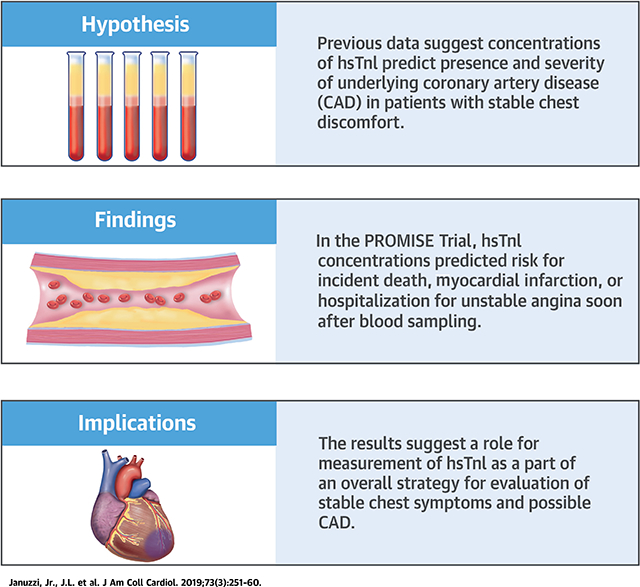CENTRAL ILLUSTRATION. Previous Data Suggest Concentrations of hsTnI Predict Presence and Severity of Underlying Coronary Artery Disease.

In the present analysis, we found that high-sensitivity troponin I (hsTnI) concentrations predicted risk for incident death, myocardial infarction (MI), or hospitalization for unstable angina in a graded fashion. In adjusted analyses, high-sensitivity troponin I represented a strong independent predictor of these outcomes, and did so by predicting earlier rather than later events. These results suggest a possible role for measurement of troponin I using a very highly sensitive assay as a part of an overall strategy for evaluation of stable chest symptoms and possible coronary artery disease.
